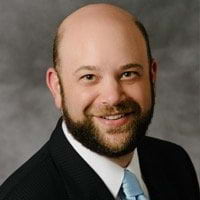Why Is Bankruptcy So Odd?
The Bankruptcy Code is broken into nine chapters, eight of them are odd-numbered and one is even-numbered. While the reason for odd numbered chapters is to allow for expansion of the Bankruptcy Code, when a new chapter was added in 2005 by the Bankruptcy Abuse Prevention and Consumer Protection Act (BAPCPA), it was added at the end, as the next odd numbered chapter – Chapter 15!
The first three chapters, 1, 3 & 5 are administrative in nature. They govern all of the other chapters. For example, I’ve written and devoted podcast episodes to the meeting of creditors under Section 341, which is part of Chapter 3, and required in all bankruptcy cases. More specifically, Chapter 1 contains general provisions, Chapter 3 addresses administration of a bankruptcy case, and Chapter 5 governs Creditors, the Debtor and the Bankruptcy Estate.
Chapter 7 is typically referred to as liquidation. In a Chapter 7 case, the debtor’s assets are sold for cash by the bankruptcy trustee, and the cash is used to pay back creditors. If the debtor has no assets (or all of the debtor’s assets are exempt) the creditors receive no money. A Chapter 7 can be filed by an individual or an entity (like an LLC or Corporation), but only individuals are eligible for discharge.
The next chapter numerically, is Chapter 9, which is reserved for municipalities. Most notably, Detroit recently filed a Chapter 9 bankruptcy. Other well-known municipalities to file Chapter 9 include Stockton, California (2012), San Bernadino County, California (2012), Jefferson County, Alabama (2011), and Orange County, California (1994).
Chapter 11 is for business or individuals who are ineligible for 7 or 13. Chapter 11 cases are referred to as reorganizations and often confused for Chapter 13 cases. Chapter 11 is for a business or entity, or for an individual who does not qualify for Chapter 13. In order to file a Chapter 13 case, the debtor must have unsecured debt less than $394,725, and secured debt less than $1,149,525 (these numbers are accurate as of 2016).
The only even-numbered chapter of the Bankruptcy Code is Chapter 12, for family farmers. There are not many Chapter 12 cases filed, especially in areas that are more industrialized and less agricultural.
The next most well-know Chapter is Chapter 13, which is an individual reorganization. A Chapter 13 allows debtors to pay back some or a portion of their unsecured debt over a three to five year plan, based on their income and the value of their non-exempt assets. Chapter 13 is only available to individuals. Companies or corporations that must file bankruptcy would use Chapter 11.
The ninth and last chapter in the Bankruptcy Code (as of this writing) is Chapter 15, which addresses cross-border cases. Using a Chapter 15 bankruptcy, a company that has filed bankruptcy outside the United States can still access U.S. Bankruptcy Court to address its debts. Chapter 15 allows cooperation between the U.S. Courts and the courts of foreign countries.
For more information on Bankruptcy, please subscribe to the Yesner Law Podcast, on iTunes and Stitcher. If you would like to schedule a free initial consultation on this or any other legal issues, please contact us to discuss your options at 727-261-0224 or email me directly at shawn@yesnerlaw.com.
Shawn M. Yesner, Esq., is the founder of Yesner Law, P.L., a Tampa-based boutique real estate and consumer law firm that helps clients eliminate debt by providing options, so they can live the lifestyle of their dreams. We assist clients with asset protection, the sale and purchase of real property, Chapter 7 liquidation, Chapter 13 reorganization, bankruptcy, foreclosure defense, debt settlement, landlord/tenant issues, short sales, and loan modifications in Tampa, Westchase, Odessa, Oldsmar, Palm Harbor, Clearwater, Pinellas Park, Largo, St. Petersburg, and throughout the greater Tampa Bay area.




